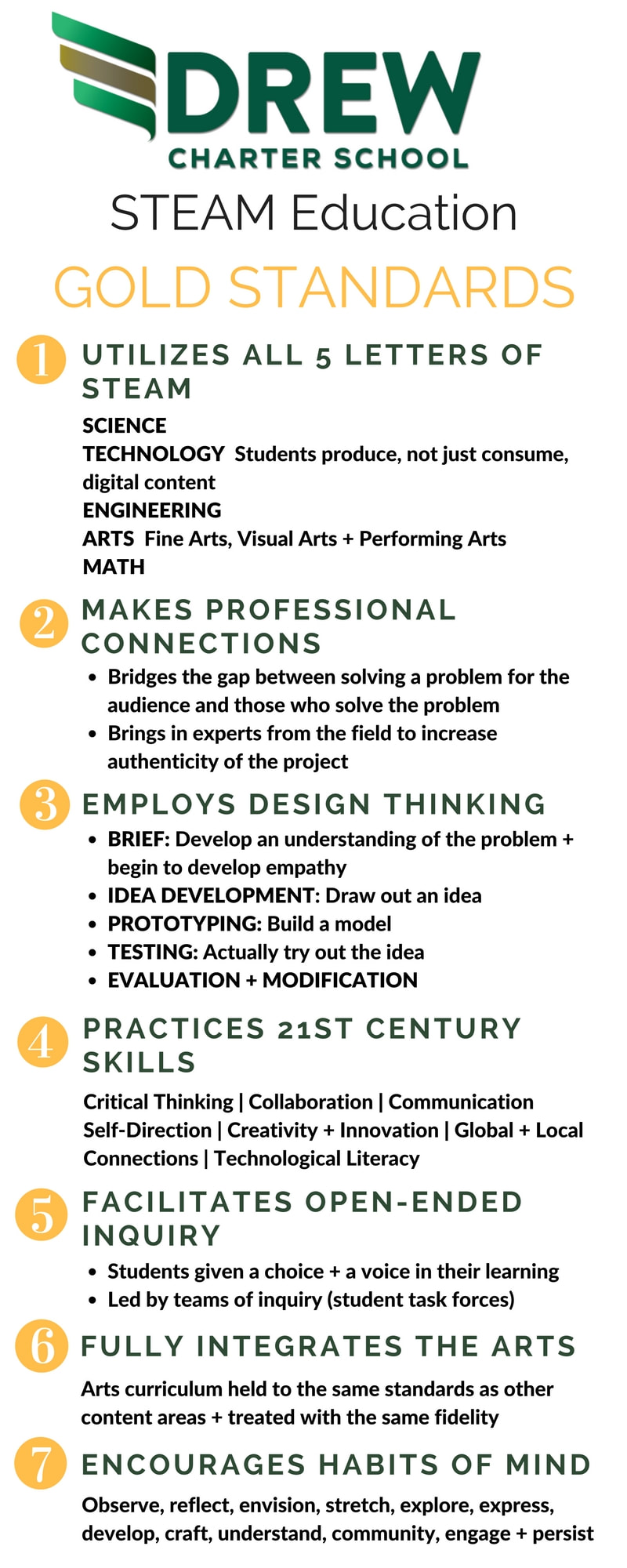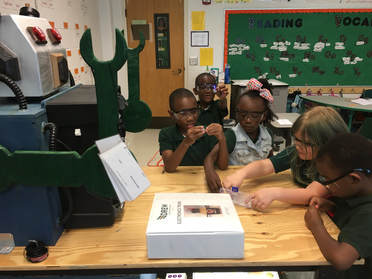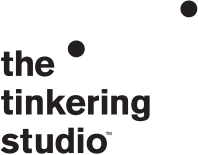STEAM EDUCATION GOLD STANDARDSRepresentatives from enrichment areas and grades K-5 who comprise Drew's STEAM Cohort identified best practices for planning STEAM lessons that make the biggest impact.
|
STEAM TRUNKSREQUEST A STEAM TRUNK
Instructors at Drew can instantly transform their classrooms into makerspaces by checking out one of our STEAM Trunks. VIEW STEAM TRUNK CALENDARS
Check the availability of each STEAM Trunk at the Elementary, Junior + Senior academies. ONLINE RESOURCESMaker Ed, a nonprofit that supports educators in facilitating maker-centered learning experiences and one of Drew's partnering organizations, offers a wealth of free resources at makered.org/resources.
The recognized authority on Project-Based Learning, the Buck Institute for Education shares high-quality PBL instructional practices and tools that allow teachers to implement PBL into any subject area across all grade levels.
Known as one of the most innovative educational makerspaces in the country, The Tinkering Studio at San Francisco's Exploratorium museum provides a multitude of project ideas ideal for any STEAM classroom.
|
USEFUL ARTICLES
WHAT IS STEAM EDUCATION? THE DEFINITIVE GUIDE FOR K-12 SCHOOLS
Published by the Institute for Arts Integration and STEAM.
Published by the Institute for Arts Integration and STEAM.
STEAM AND THE ROLE OF THE ARTS IN STEM
Huser, Joyce et al (2020). STEAM and the Role of the Arts in STEM. New York: State Education Agency Directors of Arts Education.
Huser, Joyce et al (2020). STEAM and the Role of the Arts in STEM. New York: State Education Agency Directors of Arts Education.
PBL AND STEAM EDUCATION: A NATURAL FIT
Published by Edutopia, this article articulates that high level STEAM is Project Based Learning.
Published by Edutopia, this article articulates that high level STEAM is Project Based Learning.
THE MAIN COURSE, NOT DESSERT
Published by the Buck Institute for Education, this article clearly and concisely differentiates traditional "projects" from authentic 21st Century Project-Based Learning.
Published by the Buck Institute for Education, this article clearly and concisely differentiates traditional "projects" from authentic 21st Century Project-Based Learning.




